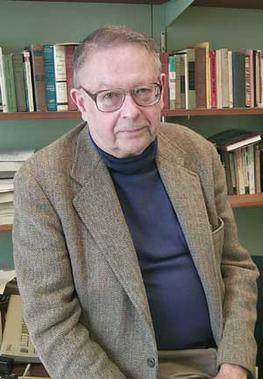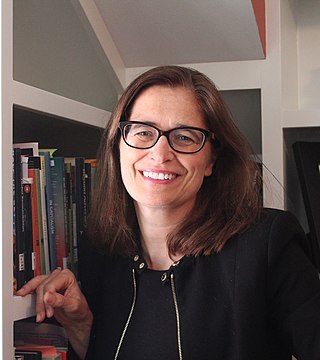Related Research Articles
Isolationism is a political philosophy advocating a national foreign policy that opposes involvement in the political affairs, and especially the wars, of other countries. Thus, isolationism fundamentally advocates neutrality and opposes entanglement in military alliances and mutual defense pacts. In its purest form, isolationism opposes all commitments to foreign countries including treaties and trade agreements. This distinguishes isolationism from non-interventionism, which also advocates military neutrality but does not necessarily oppose international commitments and treaties in general.
Political science is the scientific study of politics. It is a social science dealing with systems of governance and power, and the analysis of political activities, political thought, political behavior, and associated constitutions and laws.
Neorealism or structural realism is a theory of international relations that emphasizes the role of power politics in international relations, sees competition and conflict as enduring features and sees limited potential for cooperation. The anarchic state of the international system means that states cannot be certain of other states' intentions and their security, thus prompting them to engage in power politics.

International Relations (IR) are the interactions among sovereign states. The scientific study of those interactions is called international studies, international politics, or international affairs. In a broader sense, it concerns all activities among states—such as war, diplomacy, trade, and foreign policy—as well as relations with and among other international actors, such as intergovernmental organizations (IGOs), international nongovernmental organizations (INGOs), international legal bodies, and multinational corporations (MNCs). There are several schools of thought within IR, of which the most prominent are realism, liberalism, and constructivism.
International relations theory is the study of international relations (IR) from a theoretical perspective. It seeks to explain behaviors and outcomes in international politics. The four most prominent schools of thought are realism, liberalism, constructivism, and rational choice. Whereas realism and liberalism make broad and specific predictions about international relations, constructivism and rational choice are methodological approaches that focus on certain types of social explanation for phenomena.
A case study is an in-depth, detailed examination of a particular case within a real-world context. For example, case studies in medicine may focus on an individual patient or ailment; case studies in business might cover a particular firm's strategy or a broader market; similarly, case studies in politics can range from a narrow happening over time like the operations of a specific political campaign, to an enormous undertaking like, world war, or more often the policy analysis of real-world problems affecting multiple stakeholders.

Kenneth Neal Waltz was an American political scientist who was a member of the faculty at both the University of California, Berkeley and Columbia University and one of the most prominent scholars in the field of international relations. He was a veteran of both World War II and the Korean War.

Comparative politics is a field in political science characterized either by the use of the comparative method or other empirical methods to explore politics both within and between countries. Substantively, this can include questions relating to political institutions, political behavior, conflict, and the causes and consequences of economic development. When applied to specific fields of study, comparative politics may be referred to by other names, such as comparative government.
Computational Economics is an interdisciplinary research discipline that involves computer science, economics, and management science. This subject encompasses computational modeling of economic systems. Some of these areas are unique, while others established areas of economics by allowing robust data analytics and solutions of problems that would be arduous to research without computers and associated numerical methods.

Robert Owen Keohane is an American academic working within the fields of international relations and international political economy. Following the publication of his influential book After Hegemony (1984), he has become widely associated with the theory of neoliberal institutionalism in international relations, as well as transnational relations and world politics in international relations in the 1970s.
In international relations theory, the concept of anarchy is the idea that the world lacks any supreme authority or sovereignty. In an anarchic state, there is no hierarchically superior, coercive power that can resolve disputes, enforce law, or order the system of international politics. In international relations, anarchy is widely accepted as the starting point for international relations theory.
In statistics, qualitative comparative analysis (QCA) is a data analysis based on set theory to examine the relationship of conditions to outcome. QCA describes the relationship in terms of necessary conditions and sufficient conditions. The technique was originally developed by Charles Ragin in 1987 to study data sets that are too small for linear regression analysis but large for cross-case analysis.
Mathematical economics is the application of mathematical methods to represent theories and analyze problems in economics. Often, these applied methods are beyond simple geometry, and may include differential and integral calculus, difference and differential equations, matrix algebra, mathematical programming, or other computational methods. Proponents of this approach claim that it allows the formulation of theoretical relationships with rigor, generality, and simplicity.

Cliff Joslyn is an American mathematician, cognitive scientist, and cybernetician. He is currently the Chief Knowledge Scientist and Team Lead for Mathematics of Data Science at the Pacific Northwest National Laboratory in Seattle, Washington, US, and visiting professor of Systems Science at Binghamton University (SUNY).

Jacek Kugler is a prominent American political scientist and scholar of International Relations. He is the former Chair of the Department of Politics and Policy at Claremont Graduate University in Claremont, California.
Computational social science is the academic sub-discipline concerned with computational approaches to the social sciences. This means that computers are used to model, simulate, and analyze social phenomena. Fields include computational economics, computational sociology, cliodynamics, culturomics, nonprofit studies, and the automated analysis of contents, in social and traditional media. It focuses on investigating social and behavioral relationships and interactions through social simulation, modeling, network analysis, and media analysis.

Brooke A. Ackerly is an American political scientist and Professor of Political Science at Vanderbilt University with affiliations to the Human and Organizational Development Department, Law School, Philosophy Department, and Women's and Gender Studies Program, noted for her research on grounded normative theory, feminist theory, feminist international relations, and scholar activism.
Tanisha Fazal is an American political scientist. She is Professor of Political Science at the University of Minnesota, Minneapolis, where she joined the faculty in 2017. She was previously a professor at the University of Notre Dame and Columbia University. She is the author of the books State Death: The Politics and Geography of Conquest, Occupation, and Annexation and Wars of Law: Unintended Consequences in the Regulation of Armed Conflict. Some of her notable research findings include that violent state death has been exceedingly rare since the end of World War II, states rarely declare war, and that improvements in battlefield medicine have led to dramatic reductions in battlefield deaths. She was awarded a prestigious Andrew Carnegie Fellowship for 2021-2023.
Fotini Christia is a Greek political scientist. She is the Ford International Professor of the Social Sciences at Massachusetts Institute of Technology.
References
- ↑ "Passing of Professor Bear Braumoeller | Department of Political Science". polisci.osu.edu. Archived from the original on 2023-09-05. Retrieved 2023-05-04.
- ↑ "Bear Braumoeller | Department of Political Science". polisci.osu.edu. Archived from the original on 2023-09-05. Retrieved 2023-05-04.
- ↑ "Braumoeller-cv.pdf" (PDF). Dropbox. Archived (PDF) from the original on 2023-09-05. Retrieved 2023-05-04.
- ↑ Braumoeller, Bear Frederick (1998). Isolationism in international relations (Thesis thesis). hdl:2027.42/131392.
- ↑ "Visiting fellows program - Nobel Peace Prize". www.nobelpeaceprize.org. 2021-08-25. Retrieved 2023-05-19.
- ↑ "Bear F. Braumoeller". The Conversation. 2015-12-15. Retrieved 2023-05-19.
- ↑ "2021 AAAS Fellows | American Association for the Advancement of Science". 2022-03-11. Archived from the original on 2022-03-11. Retrieved 2023-05-19.
{{cite web}}: CS1 maint: bot: original URL status unknown (link) - ↑ Braumoeller, Bear F. The great powers and the international system: systemic theory in empirical perspective. Cambridge University Press, 2013.
- ↑ "Cairo on Braumoeller, 'The Great Powers and the International System: Systemic Theory in Empirical Perspective' | H-Diplo | H-Net". networks.h-net.org. Retrieved 2023-05-04.
- ↑ "ISA Annual Best Book Award". www.isanet.org. Archived from the original on 2023-09-05. Retrieved 2023-05-04.
- ↑ "J. David Singer Book Award". www.isanet.org. Archived from the original on 2023-09-05. Retrieved 2023-05-04.
- ↑ "The Better Angels of Our Nature", The Better Angels, Potomac Books, pp. 1–20, 2020-03-01, doi:10.2307/j.ctvvsqcpv.6 , retrieved 2023-05-05
- ↑ F., BRAUMOELLER, BEAR (2021). ONLY THE DEAD : the persistence of war in the modern age. OXFORD UNIV PRESS US. ISBN 978-0-19-762427-2. OCLC 1373780637.
{{cite book}}: CS1 maint: multiple names: authors list (link) - ↑ Braumoeller, Bear F. (2004). "Boolean Logit and Probit in Stata". The Stata Journal: Promoting Communications on Statistics and Stata. 4 (4): 436–441. doi:10.1177/1536867x0400400406. ISSN 1536-867X. Archived from the original on 2023-09-05. Retrieved 2023-05-04.
- ↑ Braumoeller, Bear F. (2004). "Hypothesis Testing and Multiplicative Interaction Terms". International Organization. 58 (4). doi:10.1017/s0020818304040251. ISSN 0020-8183. Archived from the original on 2023-09-05. Retrieved 2023-05-04.
- ↑ Braumoeller, Bear F.; Goertz, Gary (2000). "The Methodology of Necessary Conditions". American Journal of Political Science. 44 (4): 844. doi:10.2307/2669285. ISSN 0092-5853. JSTOR 2669285.
- ↑ Bennett, Andrew, and Bear F. Braumoeller. "Where the model frequently meets the road: Combining statistical, formal, and case study methods." arXiv preprint arXiv:2202.08062 (2022).